
Avatiu: The Gateway to Paradise
Avatiu, a charming village in the Cook Islands, serves as the main gateway for visitors arriving by sea. This small yet vibrant port is located on the island of Rarotonga, offering a perfect blend of cultural heritage and natural beauty. As soon as you step foot in Avatiu, you will be greeted by the rhythmic sounds of island life, from bustling markets to the gentle lapping of the ocean waves. A stroll through Avatiu reveals a rich tapestry of local life. The Avatiu Harbor is a hive of activity, where you can watch fishermen bring in their daily catch or take a leisurely boat tour to explore the surrounding waters. The village also boasts traditional Polynesian crafts and souvenirs, making it an ideal spot to pick up unique gifts and mementos. Nature enthusiasts will find plenty to love in Avatiu. The lush greenery and scenic landscapes offer numerous opportunities for hiking and outdoor exploration. Nearby, the stunning beaches provide a serene setting for relaxation and water activities. Whether you're interested in diving, snorkeling, or simply soaking up the sun, Avatiu has something to offer every traveler.
Local tips in Avatiu
- Visit the Avatiu Harbor early in the morning to see the fishermen bring in their catch.
- Take a local boat tour to explore the nearby islands and marine life.
- Don't miss the local markets for traditional Polynesian crafts and souvenirs.
- Plan a hike through the lush greenery surrounding the village for breathtaking views.
- Experience the stunning beaches for a variety of water activities like snorkeling and diving.
Avatiu: The Gateway to Paradise
Avatiu, a charming village in the Cook Islands, serves as the main gateway for visitors arriving by sea. This small yet vibrant port is located on the island of Rarotonga, offering a perfect blend of cultural heritage and natural beauty. As soon as you step foot in Avatiu, you will be greeted by the rhythmic sounds of island life, from bustling markets to the gentle lapping of the ocean waves. A stroll through Avatiu reveals a rich tapestry of local life. The Avatiu Harbor is a hive of activity, where you can watch fishermen bring in their daily catch or take a leisurely boat tour to explore the surrounding waters. The village also boasts traditional Polynesian crafts and souvenirs, making it an ideal spot to pick up unique gifts and mementos. Nature enthusiasts will find plenty to love in Avatiu. The lush greenery and scenic landscapes offer numerous opportunities for hiking and outdoor exploration. Nearby, the stunning beaches provide a serene setting for relaxation and water activities. Whether you're interested in diving, snorkeling, or simply soaking up the sun, Avatiu has something to offer every traveler.
When is the best time to go to Avatiu?
Iconic landmarks you can’t miss
Punanga Nui Market
Discover the vibrant Punanga Nui Market in Avarua, a cultural gem where fresh produce meets unique handicrafts and local flavors.
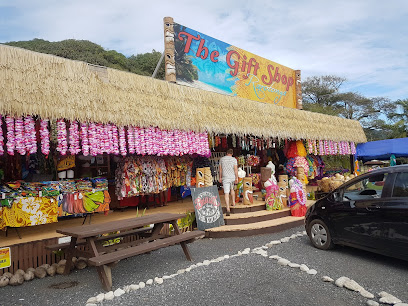
Muri Night Markets
Discover the vibrant flavors of Muri Night Markets in Ngatangiia District, a culinary hotspot perfect for food lovers and cultural enthusiasts visiting the Cook Islands.
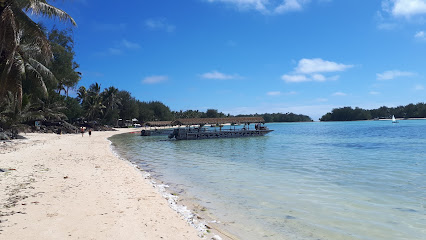
Koka Lagoon Cruises
Explore the breathtaking beauty of Koka Lagoon Cruises in Rarotonga, where turquoise waters meet lush landscapes for an unforgettable adventure.
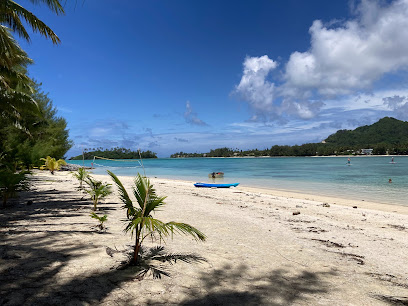
Te Vara Nui Village
Experience the rich cultural tapestry of the Cook Islands at Te Vara Nui Village, where tradition, cuisine, and dance come together in stunning harmony.
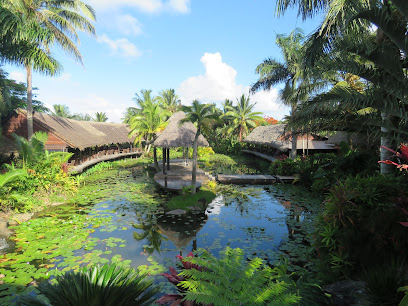
Maire Nui Gardens and Cafe
Discover the beauty of Maire Nui Gardens and Cafe, a tropical botanical paradise in Rarotonga featuring vibrant flora and delicious local cuisine.
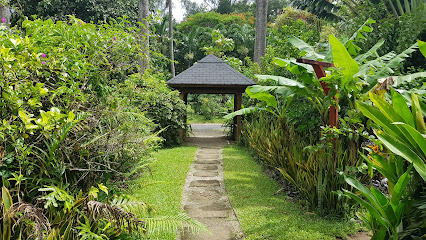
Raro Buggy Tours
Experience the thrill of adventure at Raro Buggy Tours in the stunning Cook Islands, where breathtaking landscapes and unforgettable moments await.
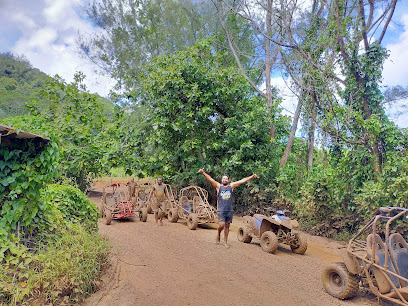
Snorkel Cook Islands
Discover the vibrant underwater world of the Cook Islands with Snorkel Cook Islands, where adventure and marine beauty await every visitor.
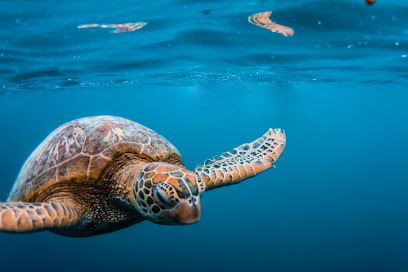
Shipwreck Hut Bar & Restaurant & Accomodation
Experience the vibrant atmosphere and delicious grilled cuisine at Shipwreck Hut Bar & Restaurant in Arorangi District, Cook Islands.
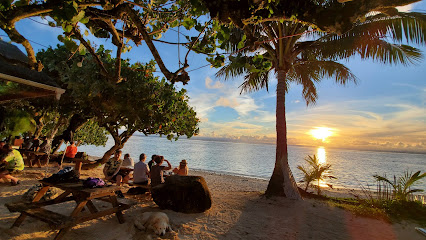
Te Ara Cook Islands Museum of Cultural Enterprise
Immerse yourself in the vibrant culture and history of the Cook Islands at Te Ara Cook Islands Museum of Cultural Enterprise.
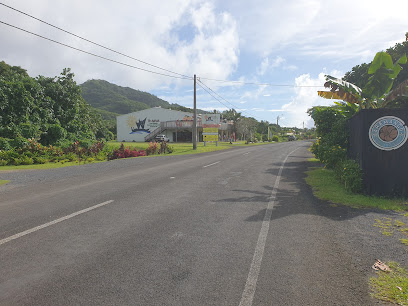
Te Rua Manga (The Needle)
Discover the breathtaking views and lush landscapes of Te Rua Manga, a must-visit natural landmark in Avarua, Cook Islands.
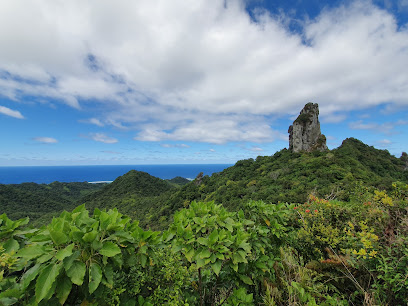
Wigmore's Waterfall
Discover Rarotonga's hidden gem: Wigmore's Waterfall, a tranquil escape into lush greenery and refreshing natural pools in the heart of the Takitumu District.
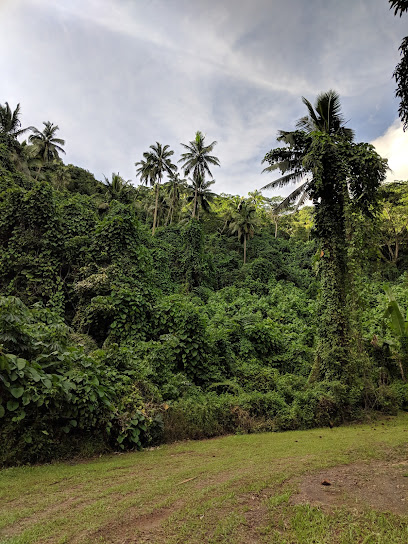
Ariki Adventures
Experience the thrill of adventure sports and marine life encounters with Ariki Adventures in the enchanting Arorangi District.
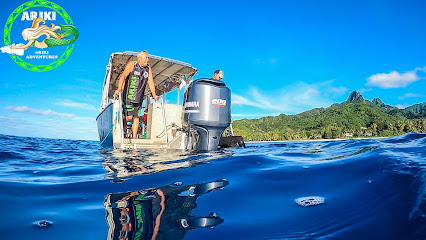
Cafe Ariki
Discover the flavors of the Cook Islands at Cafe Ariki, a beloved restaurant in Avarua offering fresh, local cuisine in a cozy atmosphere.
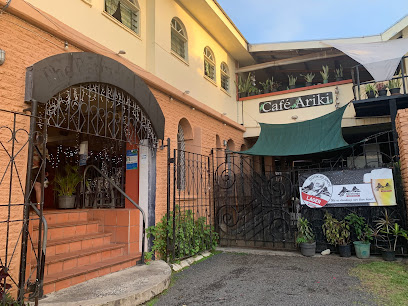
Highland Paradise
Experience the essence of Cook Islands culture through exquisite cuisine and vibrant performances at Highland Paradise, a unique restaurant and cultural hub.
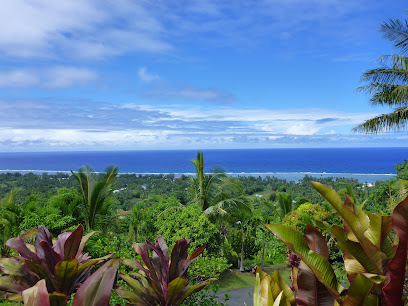
Black Rock
Explore the stunning beauty of Black Rock in Avarua, a must-visit natural attraction offering breathtaking landscapes and serene ocean views.
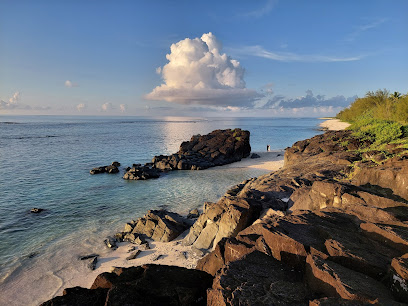
Unmissable attractions to see
Captain Tamas Lagoon Cruizes
Explore the stunning Muri Beach in Rarotonga: a tropical paradise filled with adventure, relaxation, and vibrant marine life.
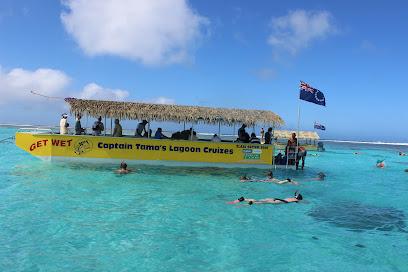
Muri Night Markets
Experience Rarotonga's vibrant culinary scene at Muri Night Markets, offering delicious local and international flavors in a lively, open-air setting.
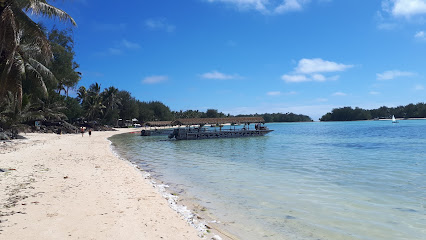
Rarotonga
Discover the enchanting beauty of Rarotonga, where stunning landscapes meet vibrant Polynesian culture in the heart of the Cook Islands.
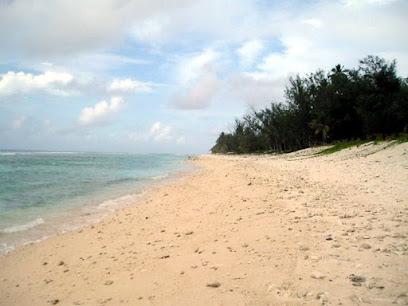
Maire Nui Gardens and Cafe
Explore the enchanting Maire Nui Gardens and Cafe in Rarotonga—your tropical retreat for stunning flora and delightful local cuisine.
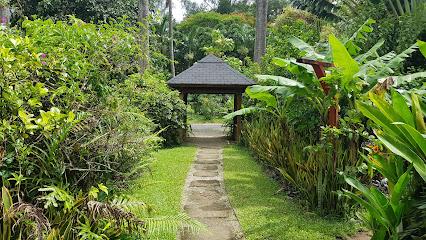
Shipwreck Hut Bar & Restaurant & Accomodation
Experience the vibrant charm of Shipwreck Hut Bar & Restaurant in Arorangi, where delicious food, live music, and breathtaking ocean views await you.
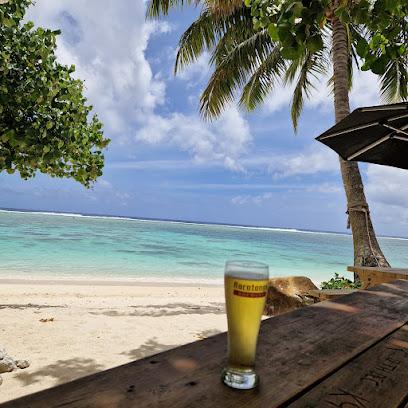
Te Ara Cook Islands Museum of Cultural Enterprise
Explore Cook Islands' history and culture at Te Ara Museum in Muri, Rarotonga. Discover Polynesian navigation, local crafts, and modern island life.
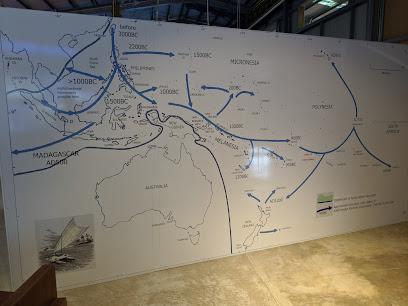
Ariki Adventures
Experience Rarotonga's underwater wonders with Ariki Adventures' unforgettable sea scooter turtle tours. Locally owned and operated!
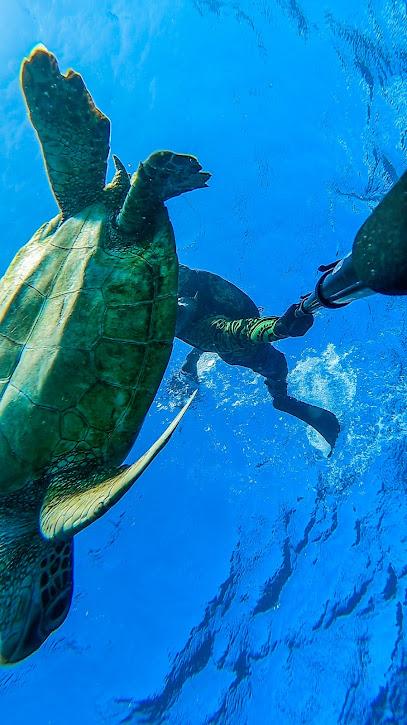
Te Rua Manga (The Needle)
Experience the breathtaking views and adventure of Te Rua Manga, the iconic natural landmark of Avarua, Cook Islands.
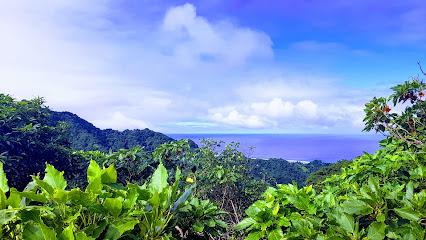
Muri Beach
Discover the serene beauty of Muri Beach, a tropical paradise in the Cook Islands perfect for relaxation and adventure.
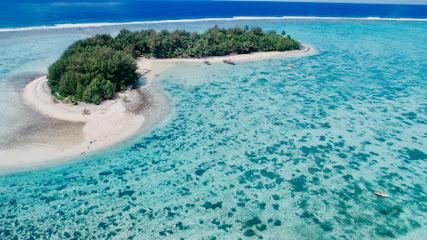
Black Rock
Experience the breathtaking beauty and tranquility of Black Rock, a premier tourist attraction in Avarua, Cook Islands, perfect for relaxation and exploration.
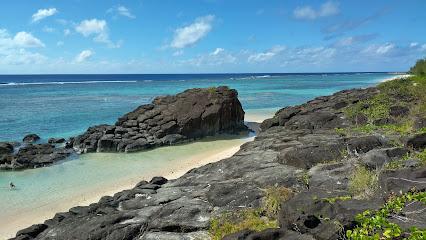
Discover Marine Wildlife and Eco Centre
Explore Rarotonga's marine life: interactive exhibits, rescued animals, and ocean views await at the Discover Marine & Wildlife Eco Centre.
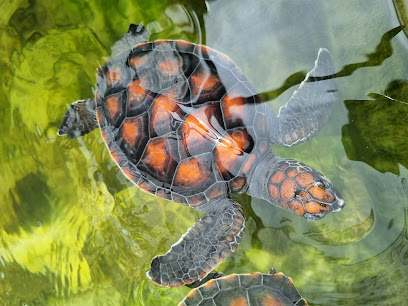
Manea on Muri
Experience Rarotonga's beauty at Manea on Muri: Self-catered beachfront villas on Muri Lagoon, perfect for a relaxing island getaway.

Raro Reef Sub
Discover the captivating underwater world of the Cook Islands at Raro Reef Sub, where adventure meets comfort in Avarua.
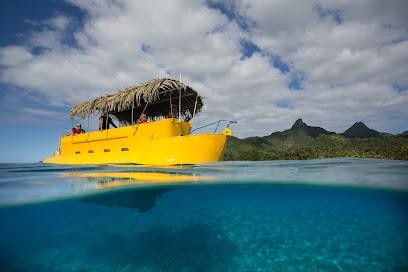
Cook Islands Library & Museum
Explore the vibrant history and culture of the Cook Islands at the Cook Islands Library & Museum in Avarua, a must-visit for every traveler.
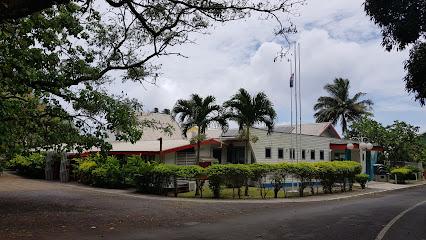
Arorangi CICC Church
Discover spiritual serenity at Arorangi CICC Church, a beautiful reflection of Cook Islands' culture and community.
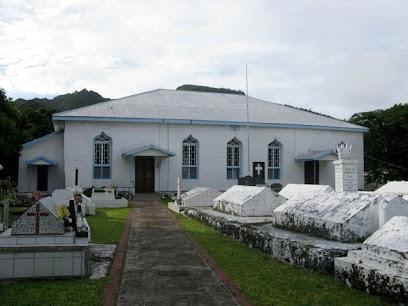
Essential places to dine
Trader Jacks
Experience authentic island flavors at Trader Jacks in Avarua - where great food meets vibrant nightlife against stunning ocean views.
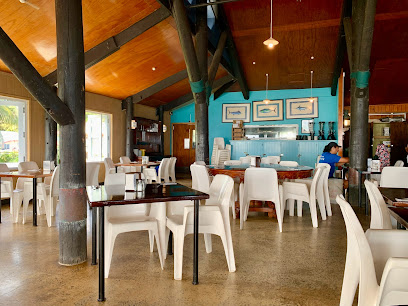
Charlie's Raro
Experience the vibrant flavors of Rarotonga at Charlie's Raro - where local cuisine meets island hospitality.
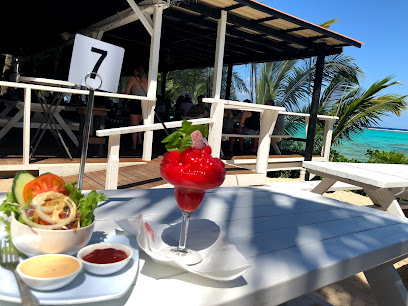
Tamarind House Restaurant & Ukulele Bar
Experience exquisite local cuisine and vibrant live music at Tamarind House Restaurant & Ukulele Bar in Avarua – a culinary gem in paradise.
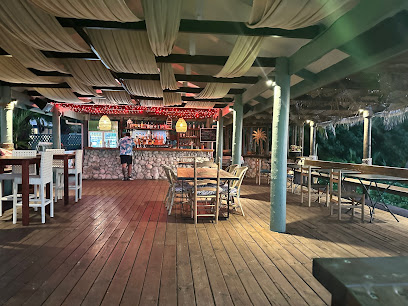
Vaima Restaurant and Bar
Discover culinary excellence at Vaima Restaurant and Bar in Takitumu - where local flavors meet breathtaking ocean views.
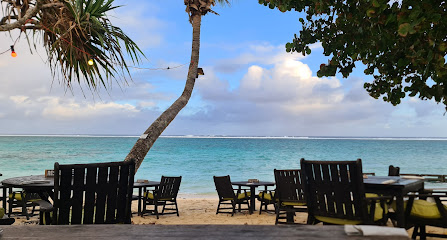
The Waterline Restaurant and Outrigger Beach Bar
Experience exquisite dining at The Waterline Restaurant and Outrigger Beach Bar in Rarotonga - where culinary delights meet breathtaking ocean views.
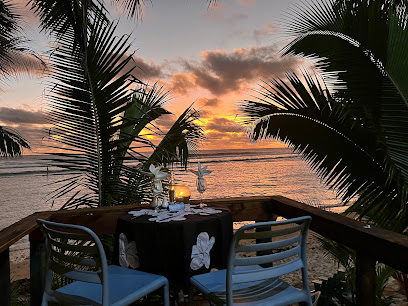
Antipodes rarotonga
Discover the flavors of Rarotonga at Antipodes Rarotonga - where local ingredients meet international cuisine in an unforgettable dining experience.
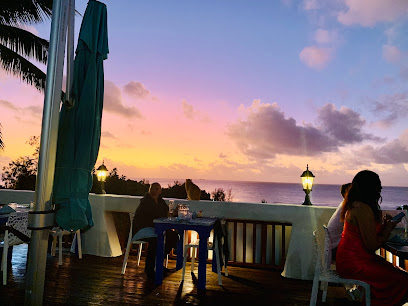
Palace Takeaways
Discover the authentic taste of Cook Islands cuisine at Palace Takeaways in Avarua – a must-visit destination for food enthusiasts.
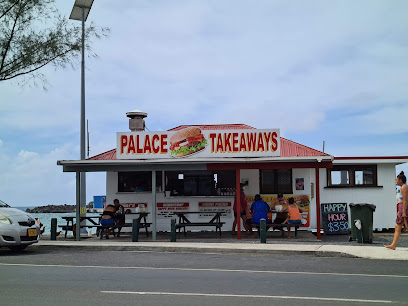
Shipwreck Hut Bar & Restaurant & Accomodation
Experience mouthwatering grilled delights and captivating live music at Shipwreck Hut Bar & Restaurant in Arorangi District.
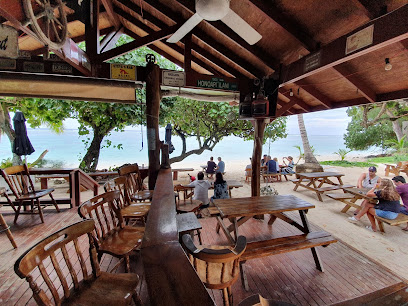
Spaghetti House Restaurant
Experience authentic Italian cuisine at Spaghetti House Restaurant in Arorangi District, where every dish is crafted with passion and fresh ingredients.
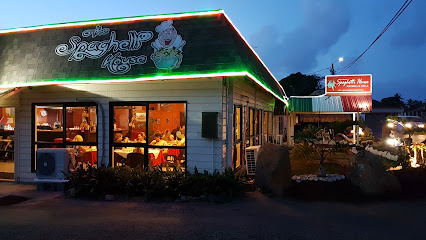
Flying Turtle Cafe
Discover fresh flavors and vibrant ambiance at Flying Turtle Cafe in Rarotonga – a must-visit culinary gem on your tropical adventure.
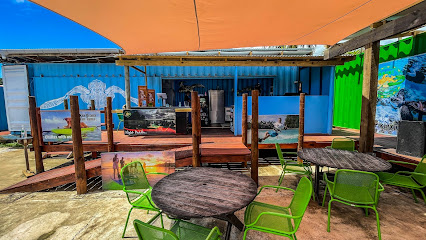
Kikau Hut
Experience authentic Polynesian flavors at Kikau Hut in Rarotonga, where fresh ingredients meet vibrant island culture.
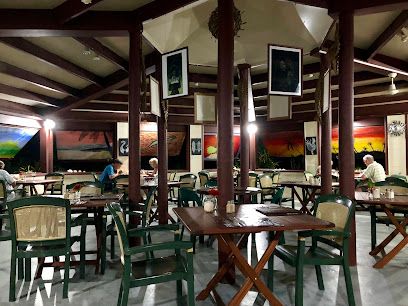
On the Beach Bar and Restaurant
Experience exquisite beachfront dining at On the Beach Bar and Restaurant in Rarotonga—where every meal comes with stunning ocean views.
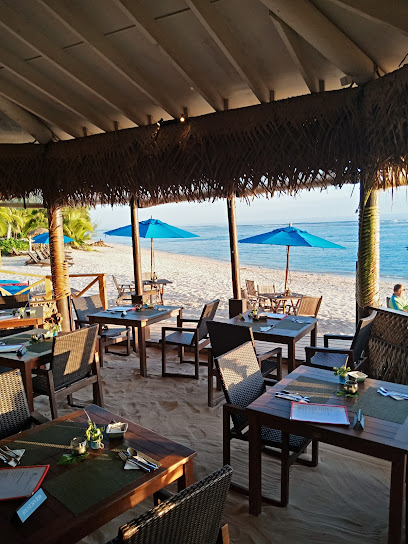
The Pacific Fish & Chip Shop
Savor delicious fish and chips at The Pacific Fish & Chip Shop in Arorangi District – a must-visit culinary delight for every traveler!
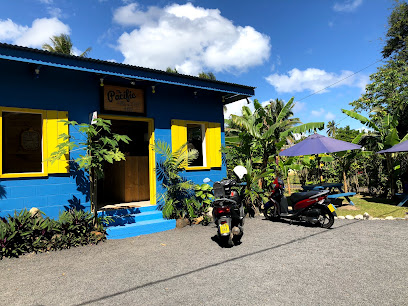
The Lucky Rooster Eatery
Experience the vibrant flavors and artistic ambiance at The Lucky Rooster Eatery in Avarua – where every meal is a celebration!
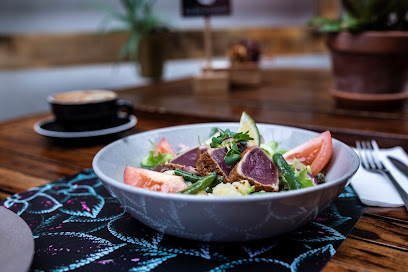
Cafe Ariki
Discover delightful flavors at Café Ariki in Avarua—where local cuisine meets warm hospitality.
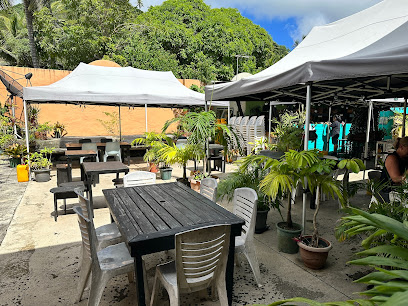
Markets, malls and hidden boutiques
CITC Supermarket
Discover local flavors and authentic island life at CITC Supermarket in Avarua, the heart of Rarotonga.
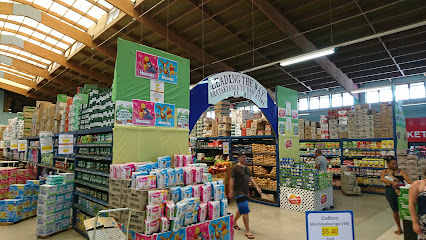
Avarua Shopping Centre
Explore the vibrant Avarua Shopping Centre, where local culture meets unique shopping in the heart of the Cook Islands.
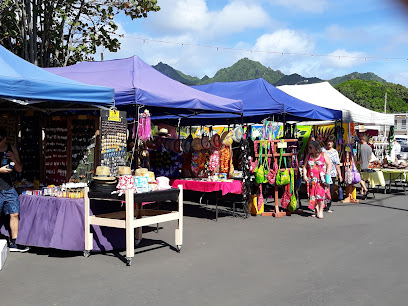
Ollie's Surf Gear
Discover the essence of island living at Ollie's Surf Gear, your ultimate destination for stylish surf apparel and accessories in Avarua.
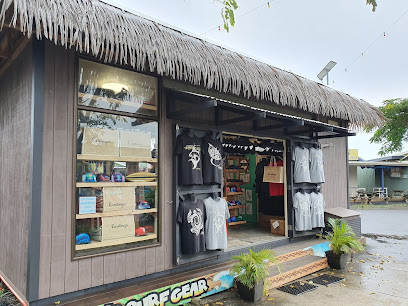
Island Craft Ltd
Explore the vibrant artistry of the Cook Islands at Island Craft Ltd, your go-to gift shop for unique souvenirs and handmade crafts.
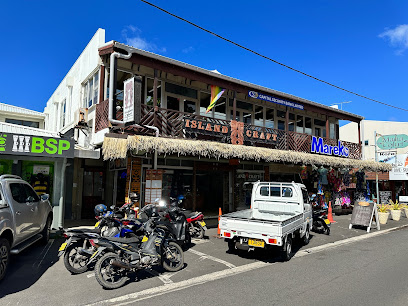
The T-Shirt Factory
Explore Avarua's unique clothing treasures at The T-Shirt Factory, where local designs meet quality craftsmanship.
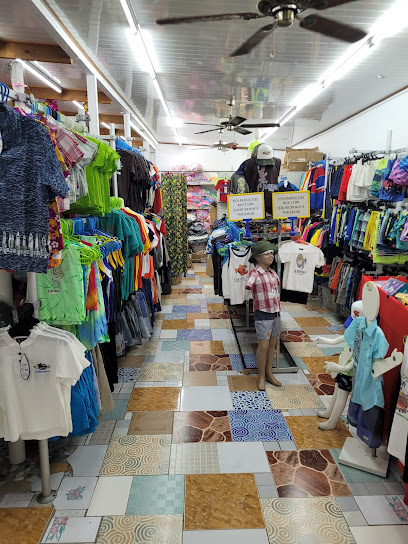
Cooks Fudge Factory/ Perfumes of Rarotonga
Discover the enchanting flavors of Rarotonga at Cooks Fudge Factory, where homemade fudge meets locally crafted perfumes and candles.
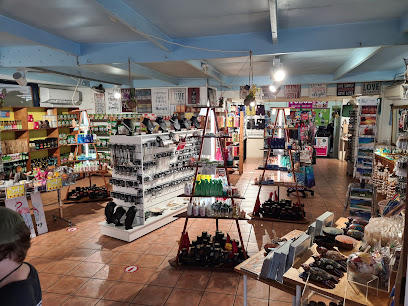
Vonnias Warehouse
Discover the heart of Avarua at Vonnias Warehouse, a vibrant shopping mall filled with local crafts, fresh produce, and an authentic Cook Islands experience.
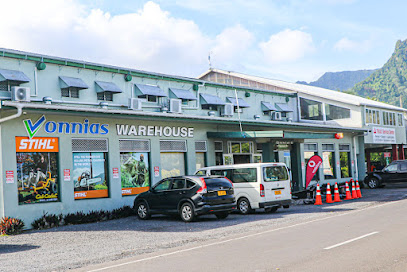
Tuki's Pareu
Explore Tuki's Pareu in Avarua for unique clothing and authentic Cook Islands fashion, showcasing local craftsmanship and vibrant Polynesian culture.
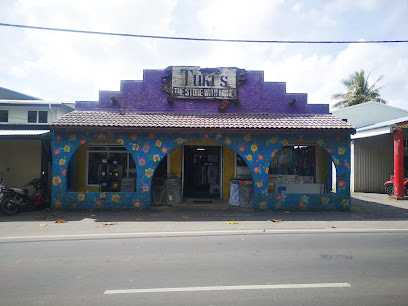
Tivaevae Collectables Cultural Gift Shop
Explore unique cultural gifts at Tivaevae Collectables in Avarua, where local artistry meets authentic Cook Islands charm.
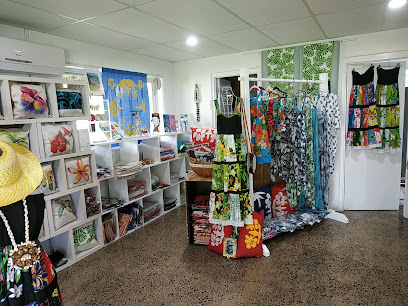
Raro Mart
Explore unique local products and antiques at Raro Mart, Avarua's premier shopping destination in the Cook Islands.
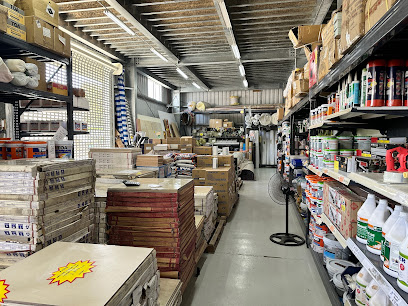
Mareko Island Creations
Explore Mareko Island Creations for authentic Cook Islands souvenirs and handcrafted treasures that beautifully represent the local culture.
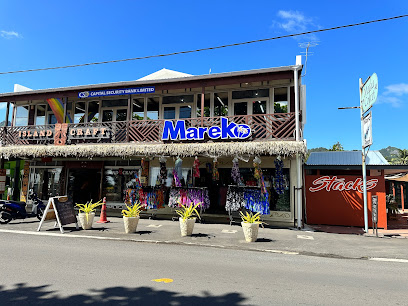
The Little Red Gallery
Explore unique local art and crafts at The Little Red Gallery in Rarotonga, a vibrant hub for creativity and culture.
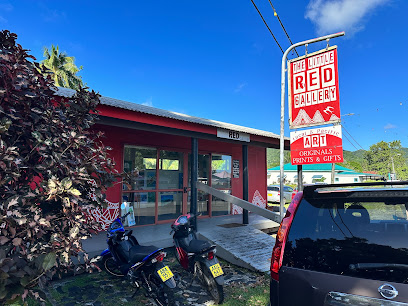
SPCA OP SHOP PUNANGA NUI MARKETS
Explore unique pre-loved clothing and support animal welfare at the SPCA Op Shop in Avarua, a gem in the vibrant Punanga Nui Markets.
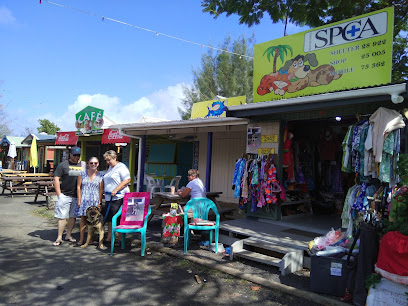
The Gift Shop
Discover the essence of the Cook Islands at The Gift Shop, offering handmade treasures and local crafts that tell a captivating story.
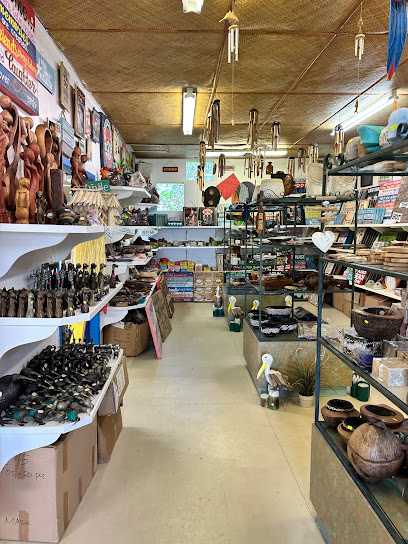
Manini Wear
Explore the vibrant local fashion at Manini Wear in Avarua, where unique designs and island spirit come together for an unforgettable shopping experience.
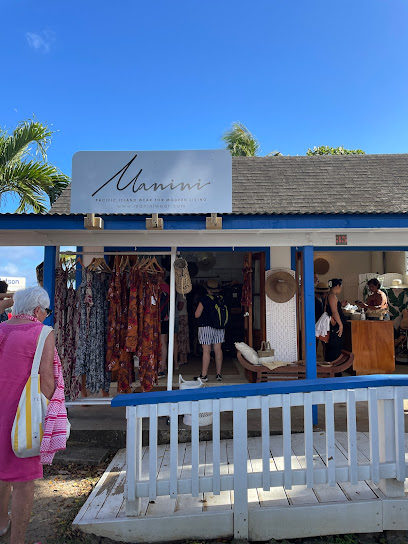
Essential bars & hidden hideouts
Trader Jacks
Experience the flavors of the Cook Islands at Trader Jacks, where delicious food meets vibrant nightlife in Avarua.
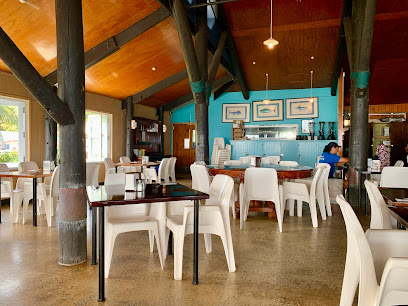
Charlie's Raro
Experience the vibrant flavors of Rarotonga at Charlie's Raro, a bar and restaurant offering the perfect blend of local and international cuisine.
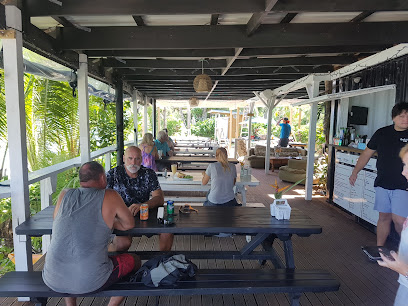
Vaima Restaurant and Bar
Experience the culinary delights of Vaima Restaurant and Bar in the scenic Takitumu District, where local flavors meet stunning ocean views.
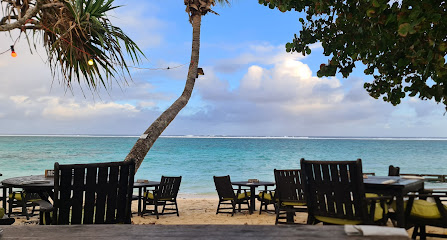
21.3 Vaiana's Bar & Bistro
Discover the vibrant atmosphere and stunning ocean views at Vaiana's Bar & Bistro, where local flavors and tropical vibes meet.
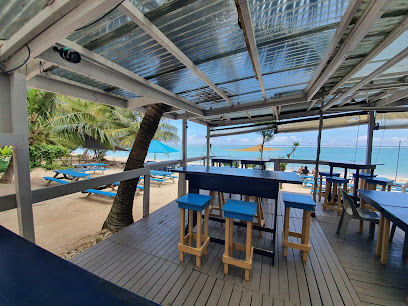
Shipwreck Hut Bar & Restaurant & Accomodation
Experience the perfect blend of delicious grill cuisine, live music, and breathtaking beachfront views at Shipwreck Hut Bar & Restaurant in Arorangi.
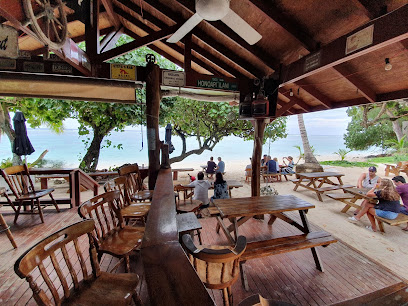
Wilsons Bar & Restaurant
Discover the vibrant flavors of the Cook Islands at Wilsons Bar & Restaurant in Arorangi District, where exquisite dining meets local culture.
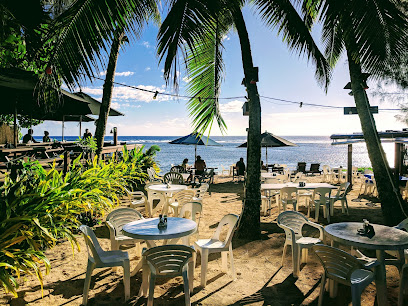
Cafe Ariki
Experience the flavors of Rarotonga at Café Ariki – a local favorite for delicious meals and stunning views in Avarua.
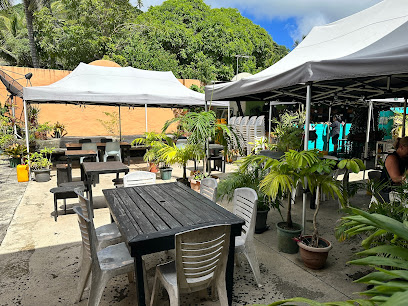
Rehab
Experience the vibrant nightlife at Rehab, Avarua's top bar and disco club, where great music and unforgettable memories await.
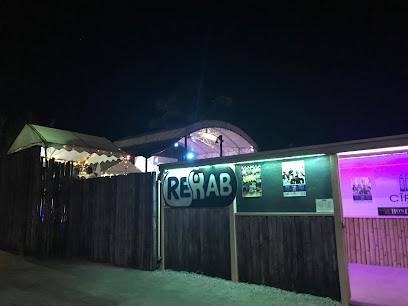
Tumunu Bar and Restaurant
Experience the vibrant flavors of the Cook Islands at Tumunu Bar and Restaurant, where tropical charm meets culinary delight.
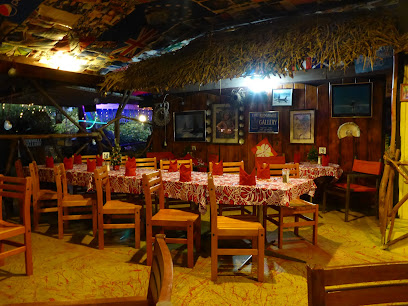
Mai’i Cafe & Bar
Discover the vibrant atmosphere of Mai’i Cafe & Bar in Takitumu District, where refreshing drinks and island charm come together.
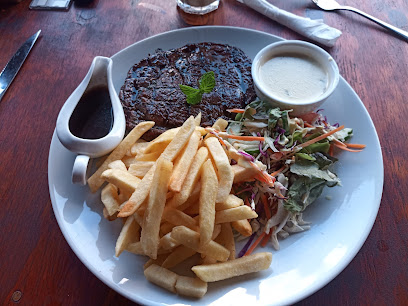
Roadhouse Bar & Restaurant
Discover the vibrant Roadhouse Bar & Restaurant in Arorangi District, where delicious food meets lively entertainment in the heart of the Cook Islands.
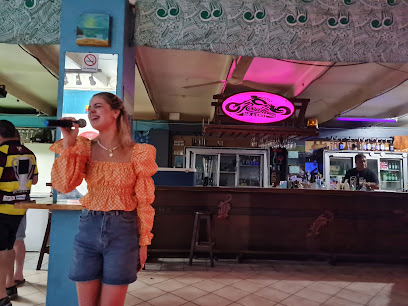
Hula Bar
Discover the lively Hula Bar in Rarotonga, where vibrant music, delicious cocktails, and a friendly atmosphere await you for an unforgettable night.
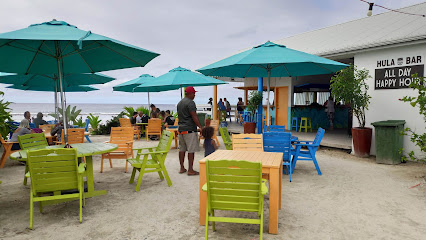
Margaritas Bistro & Bar
Experience the vibrant flavors of the Cook Islands at Margaritas Bistro & Bar, a charming culinary haven in the heart of Avarua.
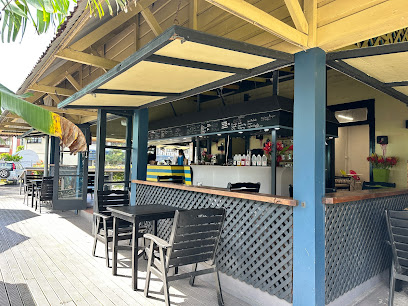
Tiki Bar
Experience the vibrant tropical atmosphere and refreshing cocktails of Tiki Bar in Avarua, a must-visit for all island travelers.
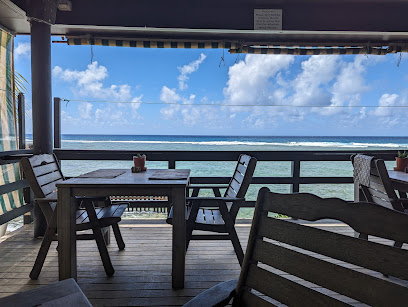
Local Phrases
-
- HelloKia orana
[kee-ah oh-rah-nah] - GoodbyeAere ra
[ah-air-eh rah] - YesAe
[eye] - NoKare
[kah-reh] - Please/You're welcomeMeitaki
[may-tah-kee] - Thank youMeitaki
[may-tah-kee] - Excuse me/SorryTangata rere
[tah-ngah-tah reh-reh] - How are you?Pehea koe?
[peh-heh-ah koh-eh] - Fine. And you?Meitaki. E koe?
[may-tah-kee. eh koh-eh] - Do you speak English?E tae ua koe i te reo Ingarangi?
[eh tah-eh oo-ah koh-eh ee teh reh-oh een-gah-rahng-ee] - I don't understandKare au e akatika
[kah-reh ow eh ah-kah-tee-kah]
- HelloKia orana
-
- I'd like to see the menu, pleaseKia akarongo au ki te menyu, meitaki
[kee-ah ah-kah-roh-ng-oh ow kee teh meh-nyoo, may-tah-kee] - I don't eat meatKare au e kai vai
[kah-reh ow eh kai vah-ee] - Cheers!Manuia!
[mah-nwee-ah] - I would like to pay, pleaseKia akarongo au i te utu, meitaki
[kee-ah ah-kah-roh-ng-oh ow ee teh oo-too, may-tah-kee]
- I'd like to see the menu, pleaseKia akarongo au ki te menyu, meitaki
-
- Help!Ara!
[ah-rah] - Go away!Aere atu!
[ah-air-eh ah-too] - Call the Police!Tuku atu ki te Polisi!
[too-koo ah-too kee teh poh-lee-see] - Call a doctor!Tuku atu ki te tohto!
[too-koo ah-too kee teh toh-toh] - I'm lostKare au i te tuku
[kah-reh ow ee teh too-koo] - I'm illKua tumeke au
[koo-ah too-meh-keh ow]
- Help!Ara!
-
- I'd like to buy...Kia akarongo au e tuku...
[kee-ah ah-kah-roh-ng-oh ow eh too-koo...] - I'm just lookingKare au e tuku atu
[kah-reh ow eh too-koo ah-too] - How much is it?E hia te moni?
[eh hee-ah teh moh-nee] - That's too expensiveTeitei te moni
[teh-ee-teh teh moh-nee] - Can you lower the price?E tika ua koe i te moni?
[eh tee-kah oo-ah koh-eh ee teh moh-nee]
- I'd like to buy...Kia akarongo au e tuku...
-
- What time is it?Ko te aha te au?
[koh teh ah-hah teh ow] - It's one o'clockKo te tahi i te ora rua
[koh teh tah-hee ee teh oh-rah roo-ah] - Half past (10)Ko te toru rau i te ora
[koh teh toh-roo rah-oo ee teh oh-rah] - MorningAkarongo
[ah-kah-roh-ng-oh] - AfternoonApopo
[ah-poh-poh] - EveningApoapo
[ah-poh-ah-poh] - YesterdayInanui
[ee-nah-nwee] - TodayAnei
[ah-neh-ee] - TomorrowApopo
[ah-poh-poh] - 1Tahi
[tah-hee] - 2Rua
[roo-ah] - 3Toru
[toh-roo] - 4Apati
[ah-pah-tee] - 5Rima
[ree-mah] - 6Ono
[oh-no] - 7Fitu
[fee-too] - 8Varu
[vah-roo] - 9Iva
[ee-vah] - 10Ngauru
[ngah-oo-roo]
- What time is it?Ko te aha te au?
-
- Where's a/the...?Ei a...?
[eh-ee ah] - What's the address?Ko te tuuru?
[koh teh too-roo] - Can you show me (on the map)?E tae ua koe i te tuatua?
[eh tah-eh oo-ah koh-eh ee teh too-ah-too-ah] - When's the next (bus)?A te aha te putunga?
[ah teh ah-hah teh poo-toong-ah] - A ticket (to ....)He tikiti (ki ...)
[heh tee-kee-tee kee]
- Where's a/the...?Ei a...?
History of Avatiu
-
The history of Avatiu, located on the northern coast of Rarotonga in the Cook Islands, begins with the early Polynesian settlers. These seafarers navigated the vast Pacific Ocean using traditional voyaging canoes known as vaka. They arrived in Rarotonga around the 6th century, bringing with them their rich cultural traditions and establishing the first settlements in Avatiu.
-
European contact with Avatiu began in the early 19th century. The first notable European to visit was Captain James Cook in 1777, although he did not land on Rarotonga itself. The arrival of missionaries in the 1820s, particularly from the London Missionary Society, had a profound impact on Avatiu. The village became a focal point for the spread of Christianity, which led to significant changes in the local culture and society.
-
In the late 19th and early 20th centuries, Avatiu Harbor was developed as a key maritime hub. This development was crucial for the economic growth of Rarotonga, facilitating trade and communication with the outside world. The harbor remains one of the busiest ports in the Cook Islands, serving as a gateway for goods and travelers.
-
During World War II, Avatiu played a strategic role as a supply and refueling station for Allied forces in the Pacific. The presence of military personnel and infrastructure brought temporary economic and social changes to the village. The war also highlighted the strategic importance of the Cook Islands in the broader context of the Pacific theater.
-
In recent decades, Avatiu has experienced a cultural revival, with efforts to preserve and promote traditional Polynesian culture. This includes the revitalization of traditional dance, music, and crafts. At the same time, modern development has transformed Avatiu into a vibrant community with improved infrastructure and amenities, making it a popular destination for tourists and a vital part of Rarotonga's economy.
Avatiu Essentials
-
Avatiu is located on the island of Rarotonga in the Cook Islands. The main gateway to Rarotonga is Rarotonga International Airport (RAR), which receives flights from New Zealand, Australia, and other Pacific Islands. From the airport, Avatiu is just a short 10-minute drive. Taxis and rental cars are available at the airport for your convenience.
-
Getting around Avatiu and Rarotonga is relatively easy. The island has a reliable bus service that circles the island in both clockwise and counterclockwise directions. Buses stop at designated stops and can also be flagged down. Taxis are available but can be expensive. Renting a scooter or a bicycle is a popular and economical way to explore the island. Rental cars are also an option for those looking for more comfort and flexibility.
-
The official currency in the Cook Islands is the New Zealand Dollar (NZD). Credit cards are widely accepted in hotels, restaurants, and shops, but it's a good idea to carry some cash for smaller purchases and in case of technical issues. ATMs are available in Avatiu and other major areas, but they can sometimes run out of cash, so plan accordingly.
-
Avatiu and the Cook Islands in general are considered very safe for tourists. Violent crime is rare, but petty theft can occur. Always keep an eye on your belongings, especially in crowded areas and beaches. Avoid walking alone at night in poorly lit areas. There are no specific high-crime neighborhoods targeting tourists, but it's always good to exercise common sense and be aware of your surroundings.
-
In case of an emergency, dial 999 for police, fire, or medical assistance. The main hospital on Rarotonga is located in the capital, Avarua, which is a short drive from Avatiu. Pharmacies are available for minor health issues, and it's recommended to have travel insurance that covers medical emergencies. For minor health concerns, over-the-counter medications are available at local pharmacies.
-
Fashion: Do dress modestly, especially when visiting churches or local villages. Avoid wearing swimwear outside of the beach areas. Religion: Do show respect for local customs and traditions. Remove your shoes before entering homes and churches. Public Transport: Do be courteous and respectful on public transport. Don’t eat or drink on the bus. Greetings: Do greet people with a smile and a friendly 'Kia Orana,' which means 'hello' in Cook Islands Maori. Eating & Drinking: Do try local dishes and delicacies. Don't refuse food or drink offered by your host, as it is considered impolite.
-
To experience Avatiu like a local, visit the Punanga Nui Market in nearby Avarua on Saturdays. Here you can buy fresh produce, local crafts, and enjoy traditional performances. Engage with locals, who are often very friendly and eager to share their culture and stories. Don't miss out on the opportunity to attend a local church service to experience the beautiful singing and community spirit. Additionally, exploring the island's inner roads and trails will give you a more intimate view of the local lifestyle and natural beauty.
Trending Landmark in Avatiu
-
Punanga Nui Market
-
Muri Night Markets
-
Koka Lagoon Cruises
-
Te Vara Nui Village
-
Maire Nui Gardens and Cafe
-
Raro Buggy Tours
-
Snorkel Cook Islands
-
Shipwreck Hut Bar & Restaurant & Accomodation
-
Te Ara Cook Islands Museum of Cultural Enterprise
-
Te Rua Manga (The Needle)
-
Wigmore's Waterfall
-
Ariki Adventures
-
Cafe Ariki
-
Highland Paradise
-
Black Rock
Nearby Cities to Avatiu
-
Things To Do in Nikao
-
Things To Do in Avarua
-
Things To Do in Arorangi
-
Things To Do in Takitumu
-
Things To Do in Matavera
-
Things To Do in Ngatangiia
-
Things To Do in Muri
-
Things To Do in Maupiti
-
Things To Do in Bora Bora
-
Things To Do in Raiatea
-
Things To Do in Huahine
-
Things To Do in Moorea
-
Things To Do in Papeete
-
Things To Do in Tahiti
-
Things To Do in Tetiaroa







